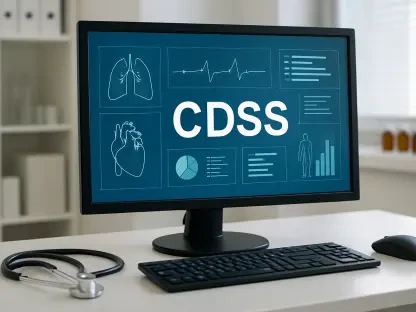Today, we’re thrilled to sit down with James Maitland, a renowned expert in public health policy and vaccine regulation. With decades of experience navigating the complex landscape of immunization strategies and federal health committees, James offers unparalleled insight into the recent developments surrounding the Advisory Committee on Immunization Practices (ACIP). As the committee gears up for a pivotal meeting on September 18 and 19, amidst significant changes in leadership and policy direction, James will guide us through the critical issues at stake, from specific vaccine discussions to broader implications for public access and trust in health systems.
Can you start by explaining what the Advisory Committee on Immunization Practices does and why their meeting this week holds such significance?
Absolutely, Julia. The Advisory Committee on Immunization Practices, or ACIP, is a federal advisory body that provides recommendations on vaccine use in the United States. They guide everything from childhood immunization schedules to adult vaccinations, and their decisions often shape how vaccines are accessed through insurance and public programs. This week’s meeting on September 18 and 19 is particularly important because it’s only the second gathering since a major overhaul of the committee by Health and Human Services Secretary Robert F. Kennedy Jr. With a new, smaller panel and a backdrop of controversy over vaccine policy, especially around COVID shots, the outcomes of this meeting could redefine national immunization strategies at a time when public trust and access are already under strain.
What are some of the key vaccines being discussed at this ACIP meeting, and what makes these topics stand out?
The draft agenda for the meeting highlights a few critical vaccines: hepatitis B, the combined measles, mumps, rubella, and varicella shot—known as MMRV—and, of course, COVID vaccines. Each of these carries unique concerns. For hepatitis B, there’s a focus on its use at birth, which is a long-standing practice to prevent transmission from mother to child, but it’s likely under scrutiny for necessity and timing. The MMRV discussion centers on rare but serious side effects like seizures after vaccination, which could influence recommendations for its use. Then, an entire day is dedicated to COVID vaccines on Friday, reflecting the intense debate over their safety and accessibility. These topics stand out because they touch on both routine immunizations and highly politicized issues, making the stakes incredibly high for public health policy.
There’s been a lot of buzz about the recent changes to the ACIP panel. Can you walk us through why the entire previous group was replaced and what drove this decision?
Certainly. Earlier this year, Secretary Kennedy made the unprecedented move of replacing all 17 prior ACIP members with a new panel of seven advisers. His stated reason was a concern over unsubstantiated conflicts of interest among the previous members, though specifics on those conflicts weren’t widely detailed. This overhaul seems to align with his broader critique of federal health agencies like the CDC, which he’s called corrupt and in need of reform. The decision reflects a push to reshape vaccine policy from the ground up, prioritizing perspectives that may challenge established norms. It’s a bold and divisive move, signaling a shift toward aligning the committee with his own views on immunization, particularly skepticism around certain vaccines like those for COVID.
How have people responded to these new appointments, especially given that some of the new members are known to question mainstream vaccine policies?
The reaction has been intense and polarized. Many in the medical and scientific community, including the ousted ACIP members, have expressed deep concern. Some have even called for an alternative advisory body to preserve evidence-based vaccine policy, fearing that the new direction could undermine public health. Medical groups are setting their own recommendations, and several states are decoupling from federal guidance, which shows a significant loss of trust in ACIP’s current makeup. On the flip side, supporters of Kennedy argue that bringing in fresh perspectives, even skeptical ones, is necessary to challenge what they see as entrenched biases in the system. The inclusion of vaccine skeptics on the panel has definitely amplified the controversy, making this a lightning rod issue.
There are also talks of additional members being considered for the ACIP. Can you share what you know about these potential new faces and their backgrounds?
Yes, there have been reports of several individuals under consideration to expand the current seven-member panel, though their nominations aren’t confirmed yet. One name floating around is Kirk Milhoan, a pediatric cardiologist and pastor who’s been vocal against COVID vaccines for children, citing rare cardiac risks. His views have drawn criticism for spreading misinformation in the past. Then there’s Hilary Blackburn, a pharmacist with experience in medication access at a major health system, which could bring a practical angle to vaccine distribution challenges. Evelyn Griffin, an obstetrician-gynecologist with a focus on lifestyle medicine, is another name mentioned, though her public stances on other health policies have raised eyebrows. These backgrounds are quite diverse and, in some cases, unconventional for ACIP, which traditionally leans on epidemiology and immunology expertise. It’s unclear how or if they’ve been vetted, but their potential inclusion signals a continued push for non-traditional perspectives.
How do ACIP’s decisions ripple out to affect everyday folks, especially when it comes to getting vaccines?
ACIP’s recommendations have a direct impact on the average person because they often determine who qualifies for vaccines and whether insurance will cover them. Public and private insurers are required to cover ACIP-recommended shots, so if the committee narrows or removes a recommendation—say, for a specific age group or vaccine—it could mean people lose coverage, even if other medical groups disagree. This also ties into programs like Vaccines for Children, which provides free shots to low-income families. Changes in recommendations could limit what that program offers, potentially leaving vulnerable populations without critical protection. It’s not just about policy on paper; it’s about whether someone can walk into a clinic and afford a vaccine they need.
With so much focus on COVID vaccines, can you explain the current challenges around access to these shots and how ACIP’s upcoming votes might change things?
Right now, access to COVID vaccines is already a challenge for many. Despite assurances from federal officials, reports show people struggling to get boosters, especially after recommendations were limited to older adults and those with certain health conditions. Secretary Kennedy has publicly stated that the vaccine shouldn’t be recommended for healthy children or pregnant women, which has tightened availability further. If ACIP votes to narrow recommendations even more during this meeting, it could make getting a COVID shot even harder, as insurers might drop coverage for broader populations. On the other hand, if they push back and expand recommendations, it could ease access, though that seems less likely given the current panel’s leanings. This is a pivotal moment for how we handle ongoing COVID protection.
Looking ahead, what’s your forecast for the future of vaccine policy in the U.S. given these recent shifts and controversies?
I think we’re at a crossroads, Julia. The current direction under Secretary Kennedy and the revamped ACIP suggests a potential for more restrictive vaccine policies, especially around COVID shots, which could lead to a fragmented system where states and private groups set their own rules. We’re already seeing states like Florida drop mandates and others push back to ensure access, so the national consensus on immunization might erode further. At the same time, there’s a strong counter-movement from medical communities and certain states to uphold science-based recommendations, which could create parallel systems of trust and access. My forecast is that the next few years will be marked by tension and uneven policy application, with public health outcomes depending heavily on how much trust can be rebuilt in federal guidance. It’s going to be a challenging road to balance skepticism with evidence.









